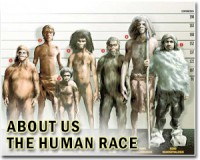 |
Helmholtz, Germany (SPX) Oct 28, 2010 Our genetic material is often compared to a book. However, it is not so much like a novel to be read in one piece, but rather like a cookbook. The cell reads only those recipes which are to be cooked at the moment. The recipes are the genes; 'reading' in the book of the cell means creating RNA copies of individual genes, which will then be translated into proteins. The cell uses highly complex, sophisticated regulatory mechanisms to make sure that not all genes are read at the same time. Particular gene switches need to be activated and, in addition, there are particular chemical labels in the DNA determining which genes are transcribed into RNA and which others will be inaccessible, i.e. where the book literally remains closed. The biological term for this is epigenetic gene regulation. Among the epigenetic mechanisms which are well studied is the silencing of genes by methyl groups. This is done by specialized enzymes called methyltransferases which attach methyl labels to particular 'letters' of a gene whereby access to the whole gene is blocked. "One of the great mysteries of modern molecular biology is: How do methyltransferases know where to attach their labels in order to selectively inactivate an individual gene?" says Professor Ingrid Grummt of the German Cancer Research Center (DKFZ). Grummt has now come much closer towards unraveling this mystery. She has focused on studying those text passages in the genetic material which do not contain any recipes. Nevertheless, these texts are transcribed into RNA molecules in a controlled manner. "These so-called noncoding RNAs do not contain recipes for proteins. They are important regulators in the cell which we are just beginning to understand," says Ingrid Grummt. In her most recent work, Grummt and her co-workers have shown for the first time that epigenetic regulation and regulation by noncoding RNAs interact. The scientists artificially introduced a noncoding RNA molecule called pRNA into cells. As a result, methyl labels are attached to a particular gene switch so that the genes behind it are not read. The trick is that pRNA exactly matches (is complementary to) the DNA sequence of this gene switch. The investigators found out that pRNA forms a kind of plait, or triple helix, with the two DNA strands in the area of this gene switch. Methyltransferases, in turn, are able to specifically dock to this 'plait' and are thus directed exactly to the place where a gene is to be blocked. More than half of our genetic material is transcribed into noncoding RNA. This prompts Ingrid Grummt to speculate: "It is very well possible that there are exactly matching noncoding RNA molecules for all genes that are temporarily silenced. This would explain how such a large number of genes can be selectively turned on and off." Kerstin-Maike Schmitz, Christine Mayer, Anna Postepska and Ingrid Grummt: Interaction of noncoding RNA with the rDNA promoter mediates recruitment of DNMT3b and silencing of rRNA genes. Genes and Development 2010, DOI: 10.1101/gad.590910
Share This Article With Planet Earth
Related Links Helmholtz Association of German Research Centres All About Human Beings and How We Got To Be Here
 Fossils double age of humans in Asia
Fossils double age of humans in AsiaBeijing (UPI) Oct 26, 2010 New fossil evidence suggests modern humans could have reached East Asia much earlier than previously believed, researchers say. Chinese and U.S. researchers have analyzed fossilized teeth and part of a jaw unearthed in southern China in 2007 and say the fragments belonged to a "modern" human who lived 100,000 years ago, the BBC reported Tuesday. The result is likely to generate c ... read more |
|
| The content herein, unless otherwise known to be public domain, are Copyright 1995-2010 - SpaceDaily. AFP and UPI Wire Stories are copyright Agence France-Presse and United Press International. ESA Portal Reports are copyright European Space Agency. All NASA sourced material is public domain. Additional copyrights may apply in whole or part to other bona fide parties. Advertising does not imply endorsement,agreement or approval of any opinions, statements or information provided by SpaceDaily on any Web page published or hosted by SpaceDaily. Privacy Statement |